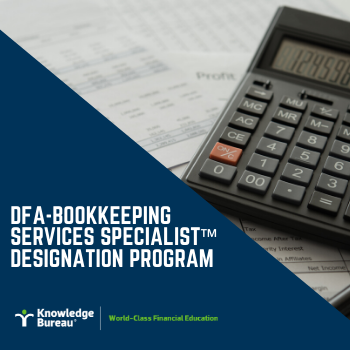Budgeting & Forecasting: More Important Than Ever

Today, even the smallest business requires timely and reliable information, if it is to succeed and thrive despite the pandemic and the constant threat of future CRA auditing. A new course from Knowledge Bureau, Budgeting & Forecasting for Small Business is designed to teach you how to use the information within bookkeeping systems to assist business owners to make sound business decisions throughout the year: an essential service during these times.
Your role. It is the role of any professional who assists with documentation to provide financial statement for tax or banking purposes to assemble the right financial information in order to assist business owners and managers in making business decisions.
A company’s accountant or bookkeeper who goes farther – to provide management accounting - can add value by helping business owners to understand their financial transactions, and put  resulting reports in context with consideration to the various transaction cycles:
resulting reports in context with consideration to the various transaction cycles:
- Revenue
- Purchasing
- Payroll
- Treasury
- Production
Management has specific information requirements for each of these cycles. In simple terms, accounting advisors can be thought of as holding a role that is either internal or external to an organization.
When you’re in a position to help businesses grow in either one of these roles, there are specific key concepts you’ll need to understand, which are outlined in Chapter 1 of the new Budgeting & Forecasting course. These include:
- How to distinguish between the roles and responsibilities of a financial accountant and management accountant
- How the responsibilities vary if the accounting is performed by an internal accountant (either an employee or contractor), or an external accountant
- The various levels of association a professional external accountant may have with an organization’s financial information
- The varying degrees of reliance a user of such information may place on this association.
- How a management accountant assesses the information needs of the users of financial information
- The more commonly encountered types of information that a management accountant would prepare for each of the major transaction cycles of a business.
This is an excellent course for professional bookkeepers and tax specialists.

